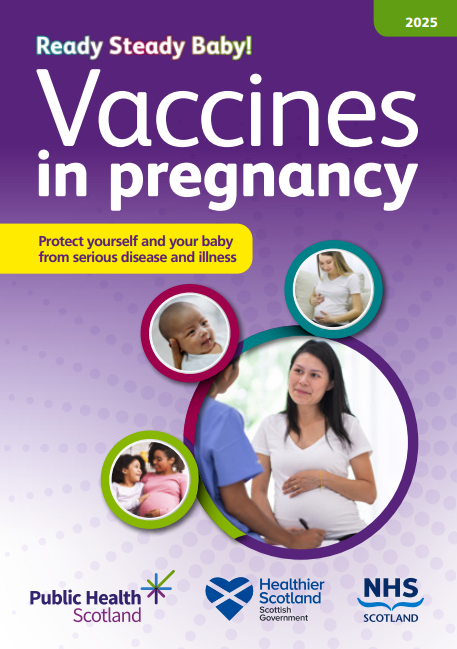You will be offered vaccines during your pregnancy. These are the best way to protect your baby from serious illness. The antibodies you develop after getting a vaccine transfer from you to your unborn baby. This helps give your newborn baby protection.
Recommended vaccinations
If you are pregnant, NHS Scotland recommends that you have the:
- whooping cough vaccine – from 16 weeks
- respiratory syncytial virus (RSV) vaccine – from 28 weeks
- flu vaccine – at any stage in your pregnancy during flu season
Find out more about the recommended vaccinations:
The leaflet is available in additional languages and formats: Vaccines in pregnancy | NHS inform















